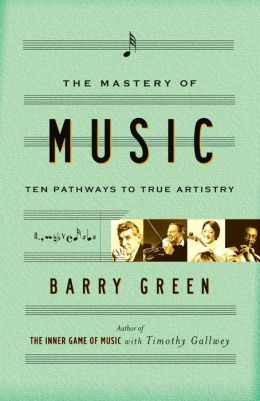Practice Wisdom from Julius Baker
In an effort to pass time at work, I've been reading book after book after book. (It feels good to finally read all the books that I impulsively bought from Amazon over the last school year!)
I just finished reading
"The Mastery of Music: Ten Pathways to True Artistry"
by Barry Green, author of the prominent book,

I highlighted a number of passages and folded tabs on half of the page corners to be able to go back and reflect on my favorite tips, which will likely result in a follow-up post.
In The Mastery of Music, Green interviewed a number of musicians and teachers in an effort to report on what he considers to be the ten pathways to artistry, which he relates to various groups of musicians. Not surprisingly, the chapter that resonated with me was, "Discipline," which he associates with woodwind players.
Green articulates wonderful advice about how to practice versus how much to practice, and includes the wonderful quote from Julius Baker:
"You'll never make a mistake if you never make a mistake."

Green emphasizes that mindless practice for prolonged periods can be counter-productive. (Also see Bulletproof Musician) If we practice things too rapidly or mindlessly, we have a higher chance of making mistakes. There will come a point where we will have to undergo the difficult task of unlearning and inhibiting our bad habits and replacing them with new ones, which proves to be an inefficient use of practice time. Baker ingeniously articulates that it is possible to avoid this laborious process by not ingraining mistakes in the first place.
What seems to be the best advice for what should be happening when we practice?
Practice slow enough to avoid making any mistakes. If it feels too easy, great!)
If it feels too boring, however, there's a good chance your focus is not on the present.
We like to think that we're not really accomplishing anything when we remove the challenge of speed. (I am guilty of this.) However, slowing down to avoid mistakes altogether provides the opportunity to put a microscope on what we're actually doing. We are able to answer the questions of "what am I doing?" and "how am I doing that?" when we play slower. We will more likely be able to figure out why the E-flat cracked or why the C-sharp was too sharp when we're going slow enough to make more critical observations. (Also called "micro-discoveries!") This gives us the opportunity to observe and learn more about ourselves and the music, which can result in faster, more notable improvement.
A point that Green emphasizes is the importance of learning first, then practicing.
Observe what you're doing, learn how to best achieve the desired outcome, then practice re-creating the optimal solution.
